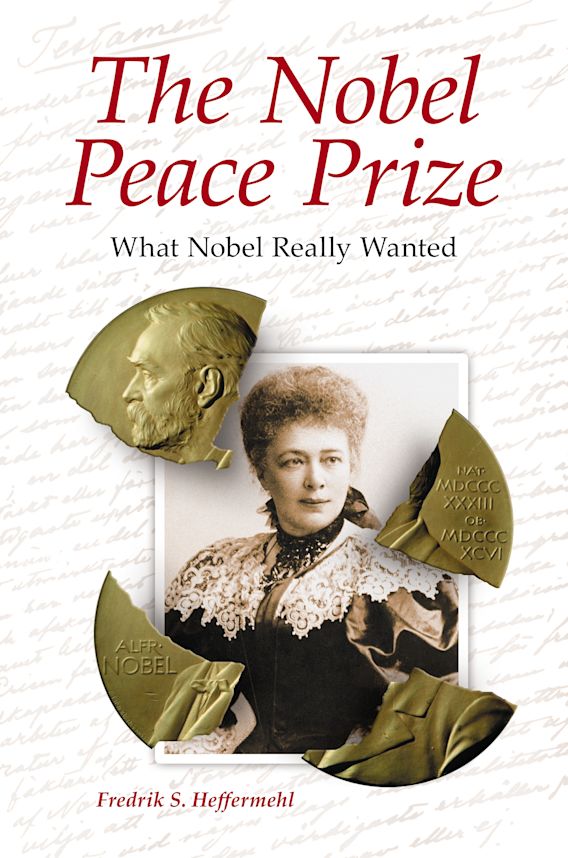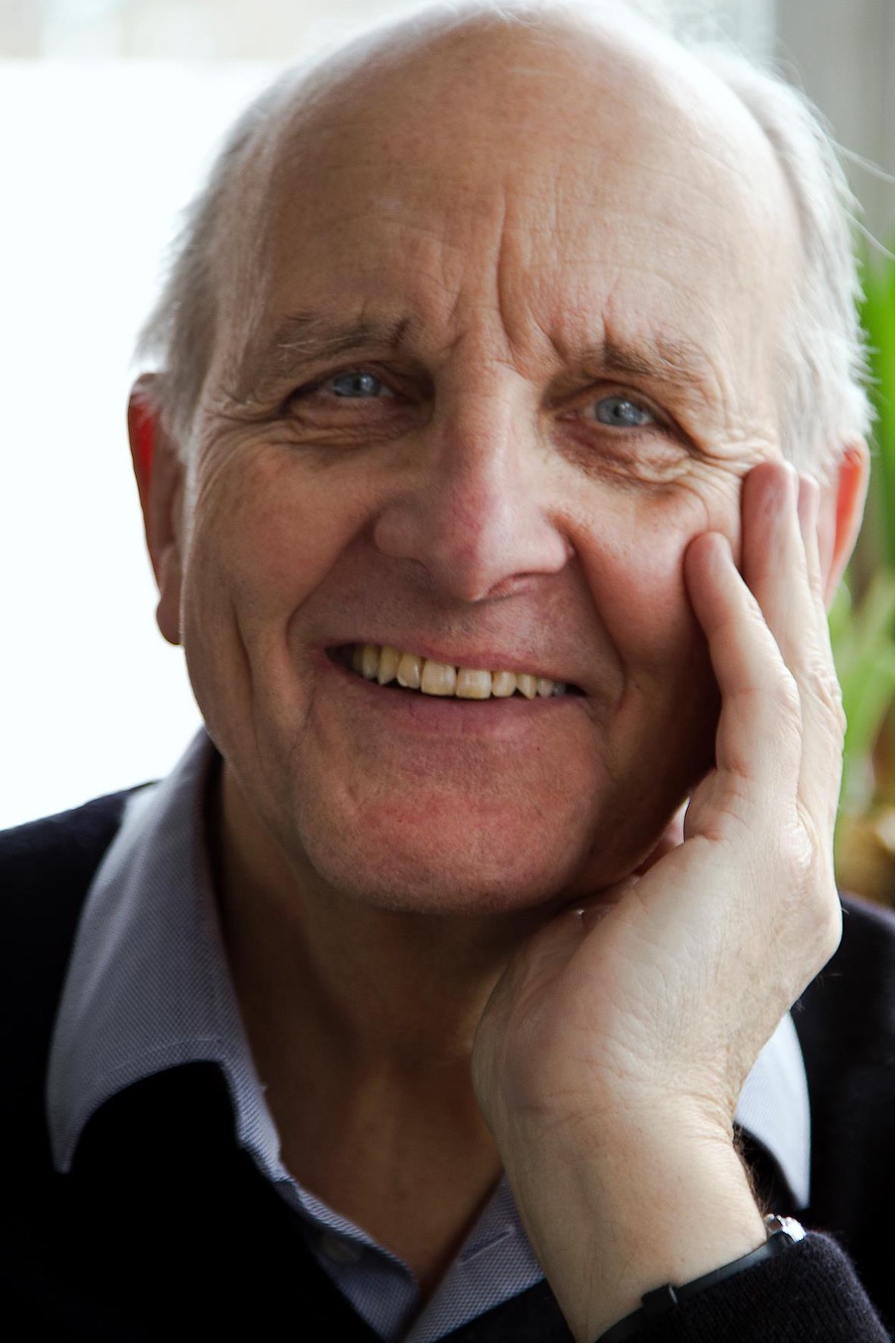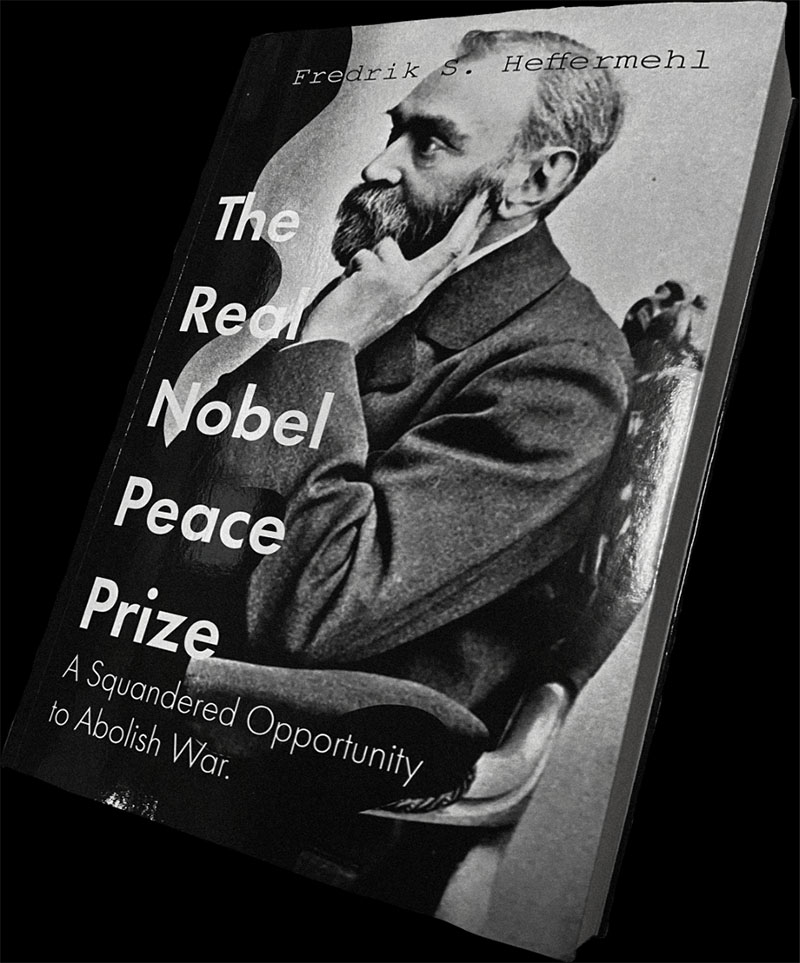By Peter van den Dungen, World BEYOND War, February 9, 2024
Norwegian peace activist and lawyer who waged a long campaign against the Norwegian Nobel Committee for not respecting the will of Alfred Nobel.
A growing unease that the persons Alfred Nobel had in mind as deserving winners of his peace prize were losing out and that the Norwegian Nobel Committee’s decisions were often failing to respect Nobel’s intentions (as expressed in his will), led Norwegian lawyer and peace activist Fredrik S. Heffermehl to start a campaign to oblige the Committee to bring its awards more in line with the requirements of the will. With considerable justification he argued that successive Committees had never undertaken a legal analysis of it (as regards the prize for peace) or considered the circumstances which had given rise to the prize.
Heffermehl, who has died at his home near Oslo on 21 December (only weeks after celebrating his 85th birthday on 11th November), was a leading member of the Norwegian peace movement, of the International Association of Lawyers against Nuclear Arms (IALANA), and one-time vice-president of the International Peace Bureau (1910 Nobel laureate). As an active supporter of many public campaigns concerning the abolition of war, disarmament, peaceful conflict resolution, strengthening of the United Nations and international law, and global cooperation, he was well aware that the lack of funding inevitably limited the extent and success of such efforts in which mobilisation of large numbers of people is dependent on raising awareness, inspiring hope, and encouraging engagement. The contrast with the military establishment and the vast resources at its disposal could not be greater. This now consists of an increasingly out of control Juggernaut, the military-industrial complex that U. S. President Dwight Eisenhower (a World War II four-star general) had warned against in his 1961 farewell address to the American people. At the end of the 19th century Alfred Nobel had predicted a return to barbarity within a few decades if the powers that be failed to reform the international system so that recourse to war was no longer an option. Both world wars, and the countless wars since then and continuing today, have confirmed his premonition. For the second year in succession, the Doomsday Clock of the Bulletin of the Atomic Scientists stands ominously at ninety seconds to midnight – a time of unprecedented danger.
The questions of what is peace, and who deserves what is widely regarded as the world’s most prestigious prize, are raised every October when the Norwegian Nobel Committee announces the name(s) of the new laureate(s). Another opportunity for further debate presents itself two months later when the award ceremony takes place in Oslo on 10th December, the day when Alfred Nobel died in 1896. The prize for what he called ‘champions of peace’ is one of five annual prizes that the Swedish inventor and successful entrepreneur included in his last will and testament drawn up the previous year. The will specified that most of his enormous wealth should be invested in a fund, the interest on which should be used to annually award prizes to those who have conferred ‘the greatest benefit on mankind’. Unlike the prizes for physics, chemistry, physiology or medicine, and literature, the prize for peace was (and remains) controversial. Heffermehl was its most severe, persistent and passionate critic while also being the most eloquent interpreter of what the prize should have been and still could be.
There was already dismay among those in the know in 1901 (when the first prize was awarded) that Frédéric Passy, the grand old man of the French and international peace movement, had to share the prize with Henry Dunant, the founder of the Red Cross. The will specified that the peace prize should go to ‘the person who shall have done the most or the best work for fraternity between nations, for the abolition or reduction of standing armies and for the holding and promotion of peace congresses’. Although the work of the Red Cross is highly meritorious, whether it meets the criteria specified by Nobel is highly debatable. The prize was not meant for helping victims of war, but for efforts leading to its abolition. The same is true for awards that have honoured work promoting, e.g., human rights, freedom of the press, labour relations, food security, care for the environment.
It cannot be doubted that Nobel was greatly influenced by his friendship with the Austrian baroness Bertha von Suttner, author of the bestselling anti-war novel, Lay down your arms (1889) that was translated into most European languages. She wrote the novel after having learnt of the existence of a peace society (the International Arbitration and Peace Association, created in London in 1880 by Hodgson Pratt), in order to bring more people into the peace movement. Soon, she herself became a famous and highly respected leader of it. Money is the sinews of war, and she pleaded with Nobel that it was also the sinews of peace. She founded the Austrian Peace Society, co-founded the German Peace Society and was much involved in the annual conferences of the international peace movement that were held in the quarter century before World War I. Nobel frequently replied positively to her request for funding without which she would have been unable to pursue her work. In her penultimate letter, after Nobel had mentioned his poor health, she urged him to continue his support ‘even from beyond the grave’. It was widely known at the time that Nobel’s posthumous support for the peace movement (through the creation of a peace prize) was due to Bertha von Suttner who was widely expected to be the first recipient. She had to wait until 1905.
In a remarkable campaign stretching back nearly two decades and documented in many articles and several books (English editions in 2010 and 2023), Heffermehl argued that Nobel’s prize was meant to support the peace movement and also to allow young and talented idealists who were working towards a world without war not to have to worry about earning a living as well. In his most recent and highly original book, The Real Nobel Peace Prize: A Squandered Opportunity to Abolish War (see https://realnobelpeace.org/), he examined every award, and all nominations received by the Committee, through this lens, making extensive use of its archives. His meticulous research resulted in a list in which more than half of all laureates (including presidents and foreign ministers) have been replaced by leading promoters of peace and international law. He demonstrated how, again and again, promising ideas and initiatives promoting disarmament, demilitarisation and the abolition of war have been overlooked in favour of work promoting, e.g., Norwegian foreign policy, or concerning areas which have only a tenuous link to the pursuit of world peace and a new global order of cooperation, not confrontation. Heffermehl also showed decisively that the Committee could not have been more wrong when, on fifteen occasions (excluding the years of World War II when Norway was occupied), it decided to make no award on the spurious ground that no candidate was considered qualified. There are no instances of this disreputable practice after 1972.
Heffermehl’s middle name was Stang; he was related to Fredrik Stang, a law professor who was also a leading politician as well as a chairman of the Norwegian Nobel Committee for almost two decades (1921-1940). Heffermehl attended the annual Nobel peace prize ceremony in Oslo for the first time in 1964 when Martin Luther King delivered his Nobel lecture. He was routinely invited to all ceremonies in future years but this came to an abrupt end when he started his campaign after having carefully examined Nobel’s testament. As recounted in great detail in his most recent book, he found the best peace ideas and people in the archives of the Norwegian Nobel Committee (because of the fifty-year secrecy rule, Heffermehl could only consult them for the period from 1901 until the early 1970s). However, they were often overlooked or deliberately sidelined when it came to choosing laureates. Although the United Nations was established ‘to save succeeding generations from the scourge of war’ – which was also the objective of Bertha von Suttner and Alfred Nobel – that promise remains unfulfilled. The belief in security by military power continues to reign supreme, even in the nuclear age. A former Norwegian Consumer Ombudsman, Heffermehl observed that what he often found missing in the military sector was consumer protection. While arms and weapons are the most profitable of all markets, he found little truth in its promises of security. Indeed, he argued that the arms industry is selling solutions to problems that it actively creates. Nations respond to fear of other nations by making themselves more frightening, guaranteeing an endless upward spiral in both cost and danger.
Arguably Heffermehl had an over-optimistic view of the potential of the peace prize to materially contribute to the abolition of war (as long as it was awarded in accordance with the founder’s intentions). As he put it succinctly and memorably, ‘the prize that should have been and the world that could have been’.
More than ever, survival in the atomic era necessitates ‘the reduction and abolition of standing armies’ that Nobel stipulated and putting recourse to war (now with weapons of mass destruction) beyond the law. It is thanks to Heffermehl’s campaign that during the past fifteen years, the Norwegian Nobel Committee developed the habit of justifying its choice of laureate by indicating how it fulfils Alfred Nobel’s mandate – even though this frequently amounts to paying lip-service only. As part of his campaign, Heffermehl compiled every year a list of individuals and organisations known to have been nominated and entitled, in his estimation, to receive the prize. He criticised the secrecy surrounding the nomination process and encouraged greater transparency and wider participation. He also took issue with the selection process of the five members of the Committee: whereas knowledge of, interest in, and support for the peace movement should have been a condition to qualify for membership, these attributes have rarely been in evidence. Members are appointed by a committee of the Norwegian parliament in a way that reflects its political composition; membership of the Committee is regarded as a badge of honour but does not necessarily imply expertise. For a long time, members of the Committee were not only members of parliament but at times also prime minister, or foreign minister leading Heffermehl to quip, ‘The managers of the Norwegian military also managed the prize to abolish the military’.
Although the Committee dismissed his campaign as one man’s misguided obsession based on a misreading of Nobel’s will, he enjoyed the support of many legal scholars from Norway and beyond, and even from former justices of the Norwegian Supreme Court, including a former Chief Justice. It goes without saying that his campaign was also supported by leading representatives of the global peace and disarmament movement who, like Bertha von Suttner, are dependent on financial support without which progress is hard to achieve. Against the Committee, Heffermehl also drew on the fascinating private diaries of Gunnar Jahn, a jurist and leading politician, who was a member of the Committee for almost thirty years and who served as its chairperson for a quarter of a century (1941-1966). In his earlier book, The Nobel Peace Prize: What Nobel Really Wanted (2010), Heffermehl included long extracts, translated for the first time from the Norwegian, showing that on several occasions Jahn threatened to resign because he could not countenance the choice of candidate by fellow members. On such occasions, Jahn justified his unease, and preference for another laureate, by explicitly referring to the terms of Nobel’s will and finding that his colleagues were instead putting forward a candidate whose otherwise praiseworthy work had little to do with peace in the understanding of Alfred Nobel. In his diary Jahn complained that the other committee members were not the least interested when he mentioned Nobel.
In his forensic examination of Nobel’s will, Heffermehl was also able to draw on the insight of Ragnvald Moe, a long-serving secretary of the Norwegian Nobel Committee. In a book that was unusual in tracing the history of the Nobel peace prize and of the peace movement from 1896 to 1930 (published in 1932 in French), Moe noted the changes Nobel had made pertaining to the prize for peace in his final testament compared with the previous version and concluded that they ‘more adequately cover the various aspects of the peace movement in the 1890s’.
Very recently Heffermehl’s campaign achieved an astounding climax when a former chairman of the Committee (2009-2015) declared that Nobel’s understanding of peace (and ‘champions of peace’) should be the guiding principle of the Committee and poses restrictions on the nature of the work that can be considered for the award. He is the prominent politician, Thorbjørn Jagland, a former Norwegian prime minister and foreign minister. In 2009 he combined the posts as Nobel committee chair and president of parliament, and afterwards combined being a committee member and secretary general of the Council of Europe. In his memoirs (2021), he wrote that ‘there can be no doubt that Alfred Nobel wanted the world to overcome nationalism and militarism. A new world order had to develop – he wanted to do something with the world. It is clear that the criteria in the will are restrictions on who the prize can be awarded to. It cannot be given to all people of good will who wish the best for humanity. The winners of the award must have a clear agenda which can be said to lead towards the goal of the abolition of militarism and nationalism and the formation of a new international order’. Heffermehl quoted Jagland’s words in his speech at an event in central Oslo last November launching The Real Nobel Peace Prize and rightly claimed that he had now an ally with impeccable credentials. It may well be that Jagland, eventually, had been persuaded by the case so tenaciously pursued by Heffermehl. Heffermehl said, ‘I wish to declare my war of sixteen years with the Nobel awarders over. We can proceed on the basis of a common interpretation’. It is ironic that only a few weeks later he passed away at this crucial turning point. It remains to be seen whether his campaign will have had a lasting impact on future decisions of the Nobel Committee.
(Dr) Peter van den Dungen is Lecturer/Visiting Lecturer (1976-2015) in Peace Studies, University of Bradford, UK; Visiting Fellow, Norwegian Nobel Institute (2000); Author of several publications on the Nobel peace prize, including some published by the Institute.












One Response
Such a good man, with a strong and clear moral compass. His energy and determination to do what was right was truly remarkable. What a blessing he was – to the international campaigns to free Mordechai Vanunu and to the struggle for a peaceful and nuclear-free world. I am so glad to have known him and call him friend.